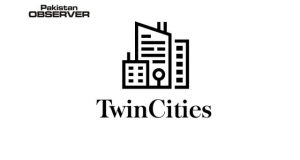Staff Reporter
Child Rights Movement (CRM) organized two day consultation with Civil Society Organizations and Child Rights Advocates on United Nations Convention on Child Rights Alternate Report.
This event was organized in the wake of Pakistan’s Submission of 6th periodic state report to UNCRC Committee.
Mr. Khalil Ahmed, Program Manager SPARC and Ms. Ambreen Zehra Naqvi, National Coordinator CRM shared that demand for Budget Allocation, Highlighting Implementation Gaps, Coordination with Civil Society, Call to strengthen National Commission on Child Rights are some of the main objectives of CRM which brings civil society from all over the country together.
Ms. Safdar Raza, Senior Child Rights Activist gave brief overview of UNCRC and Alternative Report. He mentioned that every report mentions that State of Pakistan has not fulfilled the recommendations of previous reports.
He added that the Alternative Report submitted by Civil Society forums such as CRM often brings to light the gaps left in State Report.
It shows real picture of state of child rights in the country and encompasses all issues faced by the children. This makes the role of Civil Society Organizations highly important.
Mr. Amjad Nazeer, Executive Director IDRAC briefed the participants about recommendations from previous UNCRC Report.
He highlighted that most of the times, we fail to take benefit from the recommendations and suggestions given by UN Technical Committees such as UNCRC Committee. He added that opinion of children must be consulted and included in State and Alternative Reports on Child Rights.
In concluding remarks, Ms. Khalida Ahmed, Member Board of Directors, SPARC overviewed the state of child rights in Pakistan. She mentioned that the delivery of child rights in Pakistan is slow, contradictory and not fully compliant to UNCRC guidelines.
COVID-19 pandemic has aggravated this situation further. To safeguard our children, a paradigm shift is required which must start from budget allocation. The resource allocation for child rights must be smooth, regular and shouldn’t be not happen in the last quarter of the year or reallocated to other departments.
Expenditure reports must be available to public for reviews and discussions for awareness and participation.










